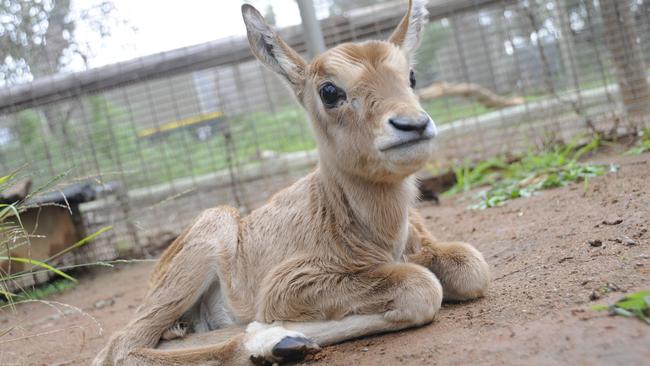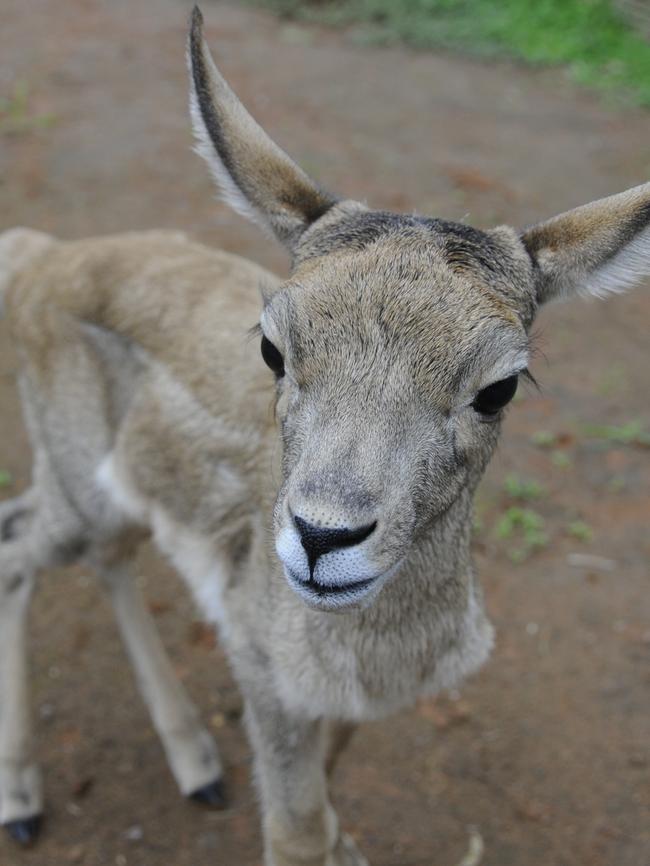Monarto Zoo baby boom of animals hunted for their horns
MONARTO Zoo has welcomed three addax, two scimitar-horned oryx and a blackbuck calf in the international breeding effort to save the species.
KEEPERS are run off their feet chasing a pitter-patter of tiny hoofs in a pre-Spring baby boom at Monarto Zoo.
Three endangered addax, two scimitar-horned oryx and a blackbuck calf all arrived within the last fortnight.
Less than 30 addax remain in the wild, with a recent aerial survey finding just three, so the new arrivals at Monarto Zoo are significant, as ungulate keeper Tess Stevens explains.
“Within 48 hours of our birthing season this year we’d equalled the number of animals seen in the wild in the last census,” she said.
“We think some of our breeding females are pregnant and yet to give birth so the number could rise.”

Monarto Zoo has bred more than 35 addax since 1994, with animals shared between sites in the breeding program.
Native to Africa’s Sahara Desert, addax are hunted for their horns, meat and hide. And they make easy targets.
“They are very confident animals, they’re very sure of themselves and they stand up to you, they stand their ground,” Mrs Stevens said.
“Against vehicles and guns they don’t stand a chance.”
The scimitar-horned oryx is classified as extinct in the wild, though other kinds still exist.
Blackbuck are listed as threatened in the wild, rather than endangered, but they are also doing well in captivity with more than 300 bred at Monarto since 1983.
Zoo keepers have a small window of opportunity to catch each baby, microchip it and give it an ear tag, to identify who it is and who the parents are.

“You’ve got 48 hours if you’re lucky after birth to be able to catch them, otherwise they’re too quick,” Mrs Stevens said.
“It’s pretty busy, it’s always a full-on time whenever you have new little baby animals.”
Two addax calves “are on public display so people can see them running around”.

